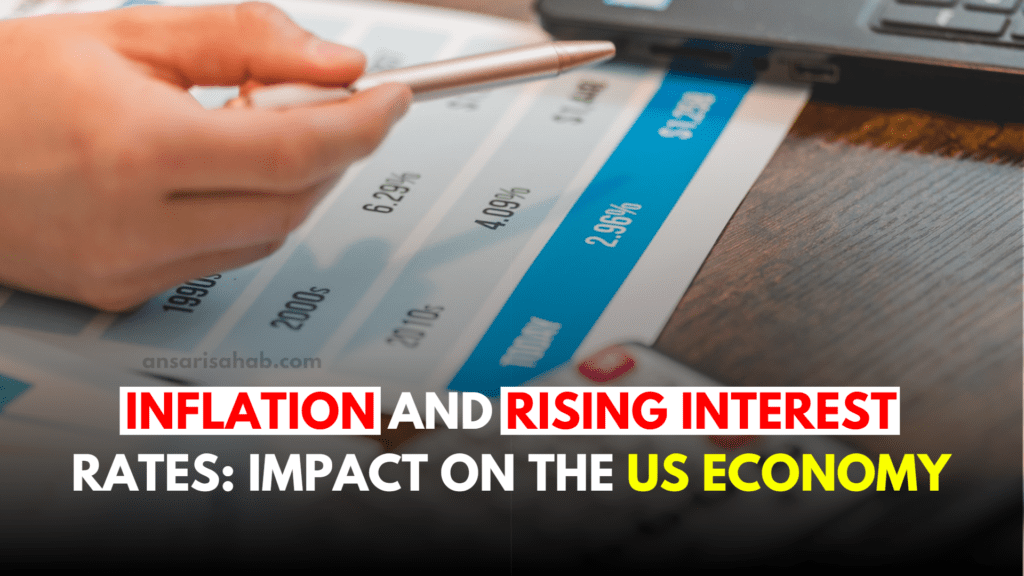
Mortgage interest rates are at their highest level in years, and this is having a significant impact on the housing market. For homebuyers, higher interest rates make it more expensive to borrow money, which can lead to higher monthly payments. For sellers, higher interest rates can make it more difficult to find buyers and may lead to lower selling prices.
If you’re thinking about buying or selling a home in the current market, it’s important to understand the impact of rising interest rates and how to prepare. Here are a few things to keep in mind:
- For buyers: If you’re planning to buy a home, it’s important to get pre-approved for a mortgage before you start shopping. This will give you an idea of how much you can afford to borrow and what your monthly payments will be. It’s also important to consider your budget and make sure you can afford the higher monthly payments that come with higher interest rates.
- For sellers: If you’re planning to sell your home, it’s important to price it competitively. In a market with higher interest rates, buyers are less likely to offer top dollar for a home. It’s also important to be prepared to negotiate on price and terms.
Despite the challenges posed by rising interest rates, there are still opportunities for buyers and sellers in the current housing market. By carefully planning and preparing, you can achieve your housing goals.
Why are mortgage interest rates so high right now?
Mortgage interest rates are tied to the federal funds rate, which is the interest rate that banks charge each other to lend money overnight. The Federal Reserve has been raising interest rates in an effort to combat inflation. As a result, mortgage interest rates have also been rising.
In addition, the demand for mortgages is high, as more people are looking to buy homes. However, the supply of homes is low, which is driving up prices. This is also contributing to higher mortgage interest rates.
What impact are rising mortgage interest rates having on the US housing market?
Rising mortgage interest rates are making it more expensive to buy a home. This is causing home sales to slow down and prices to start to come down.
According to the National Association of Realtors, home sales in the United States fell by 2.4% in July 2023, compared to the previous month. This marked the sixth consecutive month of decline in home sales.
The median home price in the United States also fell in July 2023, to $403,800. This was the first time the median home price had fallen since September 2021.
What should you do if you’re planning to buy a home in the current market?
If you’re planning to buy a home in the current market, it’s important to be aware of the high mortgage interest rates. You should also talk to a mortgage lender to get pre-approved for a mortgage so that you know how much you can afford to borrow.
Here are some additional tips for buying a home in a rising interest rate environment:
- Be flexible with your budget and timeline.
- Consider buying a smaller home or a home in a less expensive area.
- Look for homes that have been on the market for a while, as sellers may be more willing to negotiate on price.
- Work with a real estate agent who can help you find the best deals on homes.
It’s also important to note that rising mortgage interest rates are not the only factor that is impacting the US housing market. The war in Ukraine and the global supply chain crisis are also having an impact.
As a result, it’s important to do your research and talk to a trusted financial advisor before making any decisions about buying a home in the current market.
Read Also: SNAP Benefits Increase 2023: Everything You Need to Know
What should you do if you’re planning to sell your home in the current US market?
- Price your home competitively. The US housing market is currently cooling, so it’s important to price your home competitively in order to attract buyers. You can use a comparative market analysis (CMA) to determine what similar homes in your area are selling for.
- Make sure your home is in good condition. Buyers are more likely to be interested in a home that is in good condition and doesn’t need any major repairs. Make sure to address any repairs that need to be done before you list your home for sale.
- Stage your home. Staging your home can help it look its best and appeal to a wider range of buyers. Stage your home by decluttering, depersonalizing, and making minor cosmetic updates.
- Market your home aggressively. Once your home is listed for sale, be sure to market it aggressively. Hold open houses, list your home on multiple websites, and reach out to potential buyers directly.
- Be flexible with your negotiating tactics. The housing market is currently in favor of buyers, so it’s important to be flexible with your negotiating tactics. Be prepared to negotiate on price, terms, and other factors.
Are there any alternatives to traditional mortgages in the US market?
Yes, there are a few alternatives to traditional mortgages in the US market. These include:
- FHA loans: FHA loans are insured by the Federal Housing Administration (FHA). They have lower down payment requirements than traditional mortgages, and they may be a good option for borrowers with less-than-perfect credit.
- VA loans: VA loans are guaranteed by the US Department of Veterans Affairs (VA). They are available to eligible veterans, service members, and their families. VA loans have no down payment requirement and may have lower interest rates than traditional mortgages.
- USDA loans: USDA loans are insured by the US Department of Agriculture (USDA). They are available to borrowers who are buying homes in rural areas. USDA loans have no down payment requirement and may have lower interest rates than traditional mortgages.
In addition to these government-backed loans, there are also a few private sector loans that may be considered alternatives to traditional mortgages. These include:
- Hard money loans: Hard money loans are short-term loans that are typically used to finance the purchase of investment properties. They are typically made by private lenders and have higher interest rates and fees than traditional mortgages.
- Bridge loans: Bridge loans are short-term loans that are used to finance the purchase of a new home before selling an existing home. They are typically made by private lenders and have higher interest rates and fees than traditional mortgages.
If you are considering an alternative mortgage, it is important to carefully compare the terms and conditions of different loans before you choose one. You should also talk to a financial advisor to make sure that an alternative mortgage is the right choice for you.
As of October 6, 2023, the average interest rate on a 30-year fixed-rate mortgage is 7.86%.
This is up from 7.55% the week before and 6.03% at the beginning of the year.
The recent rate hikes by the Federal Reserve are expected to drive mortgage interest rates even higher in the coming months. This is bad news for homebuyers, as it will make it more expensive to buy a home.
However, there are a few things that homebuyers can do to reduce the impact of higher interest rates:
- Get pre-approved for a mortgage before you start shopping for a home. This will give you an idea of how much you can afford to borrow and what your monthly payments will be.
- Make a larger down payment. This will reduce the size of your loan and your monthly payments.
- Consider buying a less expensive home. This is the most obvious way to reduce your monthly payments.
- Look for a mortgage with flexible terms. Some mortgages allow you to make smaller payments in the early years of the loan and then increase your payments later on.
If you are planning to sell your home in the current market, it is important to be aware of the impact that higher interest rates will have on the market. Homebuyers are less likely to buy a home when interest rates are high. This means that you may need to price your home lower than you would have in a different market.
Read Also: Capital One Class Action Settlement: Everything You Need to Know
Here are some tips for selling your home in a high interest rate environment:
- Price your home competitively.
- Make sure your home is in good condition.
- Stage your home to appeal to a wide range of buyers.
- Market your home aggressively.
- Be flexible with your negotiating tactics.
The current housing market is challenging for both buyers and sellers. However, by following these tips, you can minimize the impact of higher interest rates and achieve your housing goals.
Alternatives to traditional mortgages
In addition to the alternatives I mentioned earlier (FHA loans, VA loans, and USDA loans), there are also a few other options that borrowers may want to consider:
- Private mortgages: Private mortgages are made by private lenders, such as individuals or investment firms. Private mortgages can be a good option for borrowers with less-than-perfect credit or who are unable to qualify for a traditional mortgage. However, private mortgages typically have higher interest rates and fees than traditional mortgages.
- Portfolio loans: Portfolio loans are loans that are held in the lender’s portfolio, rather than being sold to a secondary market investor. Portfolio loans can be a good option for borrowers who are willing to pay a higher interest rate in exchange for more flexibility. For example, portfolio loans may have longer terms or allow for lower down payments than traditional mortgages.
Down payment assistance programs
There are a number of down payment assistance programs available to help first-time homebuyers and other qualified borrowers. These programs can provide borrowers with grants or loans to help them cover the down payment on a home.
Some down payment assistance programs are offered by the government, while others are offered by non-profit organizations or private lenders. To qualify for a down payment assistance program, borrowers typically need to meet certain income and credit requirements.
Impact on the rental market
Rising interest rates are also impacting the rental market. Landlords are facing higher costs, such as higher mortgage interest rates and property taxes. These higher costs are being passed on to renters in the form of higher rent prices.
In addition, rising interest rates are making it more expensive for people to buy homes. This is increasing demand for rental housing, which is also driving up rent prices.
As a result of rising interest rates, many people are finding it more difficult to afford to rent a home. This is leading to an increase in homelessness and overcrowding.
Additional information
If you are considering an alternative mortgage or down payment assistance program, be sure to carefully compare the terms and conditions of different options before you choose one. You should also talk to a financial advisor to make sure that the option you choose is right for you.
If you are a renter, there are a few things you can do to cope with rising rent prices:
- Shop around for a better deal. Compare rent prices from different apartments and landlords.
- Negotiate with your landlord. If you are a good tenant, your landlord may be willing to negotiate your rent price.
- Get a roommate. This can help you split the cost of rent.
- Downsize to a smaller apartment. This can also help you save money on rent.
If you are struggling to afford rent, there are a number of resources available to help you. You may be eligible for government assistance programs, such as Section 8 housing vouchers. You can also contact your local housing authority or non-profit organizations for assistance.
FAQ (Frequently Asked Questions)
Mortgage interest rates are high due to the Federal Reserve raising the federal funds rate to combat inflation, along with increased demand for mortgages and limited housing supply.
Rising interest rates make borrowing more expensive, leading to higher monthly mortgage payments for homebuyers.
Homebuyers should get pre-approved for a mortgage, consider their budget carefully, and be flexible with their budget and home choices.
Higher interest rates can make it harder to find buyers and may result in lower selling prices for sellers.
Alternatives include FHA loans, VA loans, USDA loans, private mortgages, and portfolio loans.
Yes, there are various down payment assistance programs, both government and private, that can help qualified buyers cover their down payment.
Sellers should price their homes competitively, ensure their property is in good condition, stage it for better appeal, market it effectively, and be flexible in negotiations.
Rising interest rates have led to higher costs for landlords, which are passed on to renters in the form of increased rent prices. This is impacting affordability for renters.
Renters can shop around for better deals, negotiate with landlords, consider getting roommates, or downsize to a smaller apartment to save on rent.
Yes, renters facing affordability challenges can explore government assistance programs like Section 8 housing vouchers and seek help from local housing authorities or non-profit organizations.








